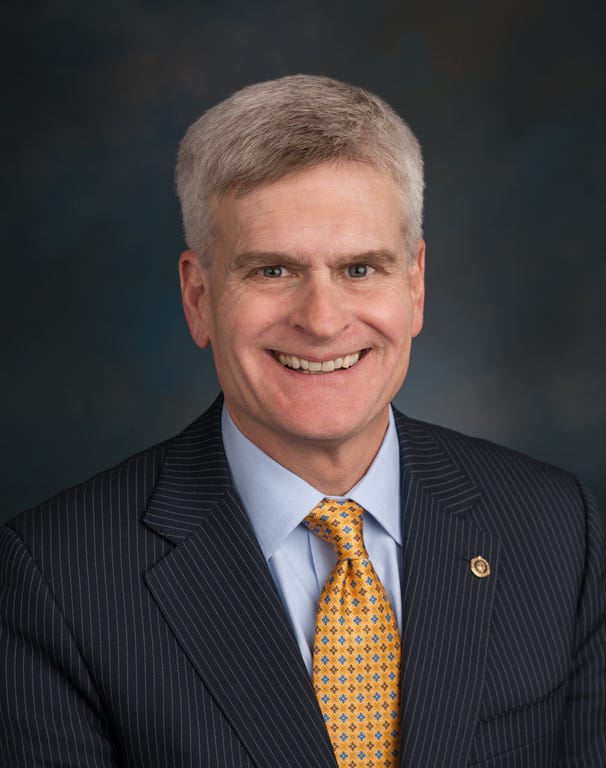For those who missed Part I: Over the next few weeks we—The Whole Truth—will be examining the profiles and voting records of all incumbent Republican Senators and House Representatives, focusing on 10 different states each week. Our goal? To determine which incumbents are most ‘deserving’ of being challenged in their respective Congressional primaries/conventions ahead of next year’s midterm elections.
Why? Well, as we’ve been reminded over the past 6 months, the Republican party has a serious ‘alignment’ problem. Despite discernable consensus on key issues among the voting public, time and again our Congressional representatives are unable to reach agreement on these same issues—leading to gridlock, unnecessary concessions, and an overall ‘dampening’ of the party agenda. While an intra-party diversity of viewpoints is usually healthy, such diversity becomes indefensible when it hinders actual policymaking, and when those viewpoints are not representative of the public’s mindset at large.
For example, despite a Republican majority in both the House and Senate, hardly any of President Trump’s Executive Orders have been codified into corresponding legislation. More than just frustrating, this is defiance of the mandate communicated by the American people on November 5, 2024.
It’s time to shake things up, and to do so, each week we’ll assess each incumbent’s record over the last 10 years with respect to the following criteria:
- General RINO-ness: Disloyal or weak Voting Behavior (voting across party lines without justification)
- Naivete/Stubbornness: Inability to compromise with Party members on key issues when necessary to ‘get things done’ (even if it means you can’t get everything you want)
- Establishment Ties: Proof of loyalty to Establishment over constituents/country/party
- General Problematic Nature: like, Matt Gaetz would score very low here…
- Sliding Scale: How well their stances align with their constituents (i.e. a Republican in a purple Colorado district can afford to be a lot more moderate than one from a deep-red Arkansas district)
But we need your help! To form a consensus, we’ve included a poll at the end of the article, asking which of the “All-Stars” on this week’s list is the MVP. At the end of our 5-part series, we should have a sense of where to focus our efforts during upcoming Congressional primaries and conventions.
So let’s get started: Here are the top contenders for “primarization” from the states of Hawaii, Idaho, Illinois, Indiana, Iowa, Kansas, Kentucky, Louisiana, Maine, and Maryland!
1. Joni Ernst (Senator, IA)
Background: Elected in 2014, Ernst often emphasizes her military background (Army National Guard lieutenant colonel) and her support for issues like agriculture and veterans’ rights. However, she has faced scrutiny for her stances on Trump’s nominees, as well as her willingness to fold under Democrat pressure tactics.
Lowlights:
· Ernst supported the 2022 Bipartisan Safer Communities Act, which included enhanced background checks for gun purchases and funding for ‘red flag’ laws. The bill was criticized by conservatives for infringing on Second Amendment rights, and Ernst’s support was seen as aligning with Democrats on a contentious issue.
· Infrastructure Investment and Jobs Act: Ernst voted for this bipartisan infrastructure bill, which some conservatives characterized as excessive government spending and a win for Biden’s agenda.
· Respect for Marriage Act (2022): Ernst voted to codify same-sex marriage protections, which drew criticism from social conservatives and religious groups within the Republican base.
· Ernst expressed concerns about sexual assault allegations against Pete Hegseth, prompting backlash from Trump allies like Charlie Kirk, Donald Trump Jr., and Bob Vander Plaats.
Label: Weak-kneed sell-out.
Verdict: Get rid.
2.
(KY-4)Background: Thomas Massie is a “special” case. Whereas the other entries on our list are unreliable or unpredictable due to their lack of principle, Massie is the opposite—a Libertarian-minded Republican with strong conservative stances on issues like foreign interventionism, government spending, and the size of the federal bureaucracy. Lately, however, Massie has come under heavy fire from Trump and others for his lack of pragmatism—being called a “grandstander” for opposing legislation without a viable (or even a speculative) back-up plan. While Massie’s staunch principles are admirable, his inflexibility is such that there are times when his seat might as well be held by a radical Democrat.
Lowlights:
· “Big Beautiful Bill” (2025): Massie was one of two Republicans to vote “No” on this month’s sweeping legislative package, calling it a “ticking time bomb” for extending Trump’s 2017 tax cuts without a corresponding decrease in spending. While he may be proven correct, the alternatives (letting the tax cuts expire or triggering a debt ceiling crisis) would have spelled disaster for the country and plunged Trump’s second term into chaos. Form > Substance.
· Massie initially opposed the censure of Adam Schiff for his actions as chair of the House Intelligence Committee, particularly his role in the first impeachment inquiry of President Trump and his handling of the Trump-Russia investigation. In defending his opposition, Massie cited free speech concerns—a strange stance considering that simple political censure is mild recourse for a political witch-hunt. Massie did eventually support a later version of the censure resolution.
· Massie opposes government regulation of Big Tech, including reforms to Section 230 of the Communications Decency Act, again citing Libertarian concerns. As TWT explained in one of our early articles, it’s difficult to see how permitting biased digital censorship and allowing Big Tech to frame the political discourse is a boon for free speech.
· Massie has supported government shutdowns as leverage for fiscal reform, as seen in his votes against stopgap funding bills in 2023 and 2024. Government shutdowns are wildly unpopular with the American public—if Massie had succeeded, a shutdown would have jeopardized Republican success in last year’s elections.
Label: “Dr. No”.
Verdict: Learn to be a politician rather than a novelty. Otherwise find a new profession.
3. Bill Cassidy (Senator, LA)
Background: Cassidy, a physician, has served on the Senate Health, Education, Labor, and Pensions Committee and has a reputation as a moderate Republican. A staunch advocate for Louisiana’s energy sector, he supports policies to bolster oil, gas, and renewable energy jobs while addressing coastal restoration to combat land loss.
Lowlights:
· Was one of seven Senate Republicans to vote to convict Trump during his second impeachment trial in 2021, charging him with incitement of an insurrection related to January 6th. This led to Cassidy’s censure by the Louisiana Republican Party, signaling significant disapproval from the state’s GOP base.
· Cassidy has criticized Trump’s immigration rhetoric, claiming it “dehumanizes” illegal immigrants.
· Called for Trump to drop out of the 2024 Republican Primaries due to Trump’s indictment for mishandling classified documents.
· In 2021, played a key role in crafting and supporting the $1.2 trillion Infrastructure Investment and Jobs Act with Democrats and the Biden administration, and supported a national commission to investigate January 6th.
· Cassidy’s hesitation to fully support Trump’s nominees, like Robert F. Kennedy Jr. for Health and Human Services secretary, has led to criticism from Republicans like Rep. Clay Higgins and activist Charlie Kirk (though he ultimately voted to confirm RFK Jr.).
Label: RINO Puppet.
Verdict: Not fit for any red state, let alone deep-red Louisiana.
4. Mike Simpson (ID-2)
Background: Simpson trained as a dentist before beginning his political career in 1980, when he was elected to the Blackfoot City Council. In 1984 he was elected to the Idaho Legislature, where he served until 1998, serving as Speaker for 6 years. Currently, Simpson is in his fourteenth term in the House for Idaho’s 2nd District—his core issues include agriculture, energy, the Environmental Protection Act, the Endangered Species Act, and Family/Social issues like removing public funding for abortion as birth control. Many recognize him as a moderate, but by the 2010s he earned a reputation for being a “big-spending, tax-increasing, government-run-health-care-supporting, bailout-backing, school-choice-opposing, liberal” RINO. Allegedly, the following Henry Clay quote hangs in his office: "Politics is not about ideological purity or moral self-righteousness. It is about governing, and if a politician cannot compromise he cannot govern effectively."
Lowlights:
Among the Republicans to certify the 2020 election and legitimize the J6 Capital Police suicides, but also voted against Trump’s impeachment for insurrection.
Voted in favor of the Farm Workforce Modernizations act, which grants amnesty to millions of Illegal Immigrants, without doing anything to reform the immigration system.
Consistently votes for reckless spending packages, such as a 2020 $1.4 trillion omnibus & $900 Billion COVID package (packaged bloated federal appropriations into inefficient and ineffective COVID “relief” measures, and made a slew of unrelated policy changes like surprise medical billing); the 2019 Domestic Minibus Spending Package (this included provisions like tax extenders that prop up politically connected industries on the American tax dollar, expanded taxpayer funding of abortion through Obamacare insurance plans, and added report language requiring the CDC and the National Institutes of Health to spend $25 million each studying violent usage of firearms); and the ‘Bipartisan’ Budget Act of 2019 (a Mnuchin-Pelosi budget bill which raised budget control caps by $322 billion, suspended the debt ceiling for another 2 years and would have created annual deficits on par with President Obama’s).
In 2021, voted to reauthorize the Violence Against Women Act, which contained provisions allowing transgender women to use women’s shelters and serve time in prisons matching their gender identity.
Label: Reckless.
Verdict: There are bigger fish to fry, but he should feel some heat.
5. Susan Collins (Senator, ME)
Background: Collins was elected in 1996 and reelected in 2002, 2008, 2014, and again in 2020. Known for her work ethic, she has cast more than 9,000 consecutive votes and holds the longest perfect voting record in the history of the Senate—she can’t be accused of resting on her laurels, unlike other career politicians. As the only Republican representative from Maine in Congress, she is a self-described “moderate” but is consistently classified as left-leaning on social and economic scales.
Lowlights:
Sided with President Obama’s position 75% of the time (one of only two Republicans to vote with Obama more than 70% of the time). Notably, she voted against repealing Obamacare, while somehow maintaining that she stands with Republicans in opposing it.
Did not vote for Donald Trump in 2016, endorsed Nikki Haley over Trump in the 2024 primaries, and then declined to vote for Donald Trump in 2024 (instead writing in Nikki Haley).
Consistently advocated for Biden to increase public, military and economic support for Ukraine.
Though she voted against Trump’s first impeachment, she was one of seven Republican Senators who voted to convict Trump in his second impeachment trial for inciting an insurrection. She was also one of the Republicans that pushed for certification of the 2020 election results.
Label: Liability.
Verdict: Challenge.










You've done a yeoman's job putting all this together. People like Susan Collins are always performing a delicate balancing act, one she has done well. You mentioned Congress codifying executive orders. I feel like executive orders are to be getting out of hand. Yes, they are tools for the Chief Administrator. Has the Supreme Court ever clarified or set guidelines? Maybe an amendment is need for just such clarification. What do you attorneys think about this?